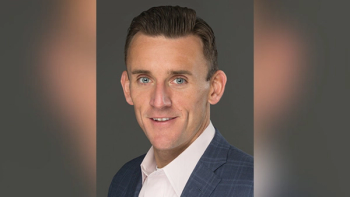
The State of Compounding: Q&A with Olympia Pharmaceutical’s Mark Mikhael
The CEO discusses the current state of compounding pharmacies and how it built to this point.
Mark Mikhael, CEO of Olympia Therapeutics, spoke with Pharmaceutical Executive about the compounding industry, which has a renewed spotlight on it due to recent high profile drug shortages.
Pharmaceutical Executive: How did you and Olympia come together?
Mark Mikhael: I started here in January of this year, and it's been an absolutely amazing ride. There’s a great culture and community. We're pharmacist owned, and so that really helps to set a great tempo for the organization as well. I graduated with my doctorate in pharmacy in 1999 from Florida A&M University. I've been in compounding my entire career, and I’ve really been on the forefront when it comes to 503 B. I have served in leadership roles within the Florida state association as well as sat on the Florida Board of pharmacy from 2013 to 2021.
PE: What is the current state of the compounding industry and what trends have you noticed emerging?
Mikhael: In 2006, I worked with the largest outsourcing company within the country, and that was six years before the NECC crisis, which is what really helped to change a lot of the landscape around 503 B compounding. It was neat to see it evolve from the inside out. FDA, to their credit, really foresaw what was happening with the compounding or outsourcing industry. Because of public demand, a lot of pharmacies had really outgrown USP guidelines for compounding, and so FDA was really trying to push a lot of those large-scale pharmacies into 503B and using good manufacturing practices. We fast forward from 2006 to 2012, NECC happened, and we got the official legal regulation around 503B outsourcing facilities that really helped to establish the industry and Congress did a fantastic thing. They really highlighted where 503B comes into the marketplace off the bulks list, which is for those items that nobody else really has and no large pharmaceutical companies want to manufacture anymore. There's still large enough demand that they need to be mass produced. What I think is the more important category, or a higher level category, is responding to the shortages. And so, FDA’s creation of the 503 B's have also really excelled.
The shortage list is really where 503Bs have really stepped up to really ensure public safety and access for drugs. If you take the recent events, with Hurricane Nadine and one of the large IV fluid manufacturers in the country being completely devastated as the hurricane went through North Carolina, it really put the health systems across the country at jeopardy from not being able to provide just simple IV solutions. And so working with other 503 B's, we really stepped up and said, “Hey, we're going to shift over our production line so that we can meet these demands for these health systems to provide IV fluids.” And credit to FDA, it issued some great guidance over the weekend that really helped ease some of the restrictions so that the 503Bs can really make sure that necessary compounds are available.
You read stories of oncology patients and pediatrics that are expiring because they don't have simple access to IV fluids. And this is where the 503Bs can really step in, and do so quickly. You're talking about a catastrophe that happened three weeks ago, and the industry has already responded to make sure that we increase access to those lifesaving medications.
PE: What would you say the major issues impacting patient safety are in the pharma compounding space?
Mikhael: Our company cornerstone is really built around quality. When you look at USP and the way that that pharmacy compounding is done, it's very prescriptive. It tells you what to do and how to do it. It gives you very defined parameters. When you move into large scale manufacturing of batch sizes, (10-20,000 units), you change your philosophy a little bit to bake quality into the process, start to finish.
There's only 70 some 503Bs in the country. You know who the ones are that tried and true and established within the market. One of the things that I really pride myself on is that Olympia was one of the first 350 3b registered and inspected within the entire country. That gives us a certain level of quality built around our processes and our quality. The biggest thing I will is if there are large scale 503Bs that are cutting corners on quality to maximize profits, then that has a detrimental effect for large populations by having products that don't meet the quality standards by FDA, or even by what the industry itself is dictating.
Newsletter
Lead with insight with the Pharmaceutical Executive newsletter, featuring strategic analysis, leadership trends, and market intelligence for biopharma decision-makers.




